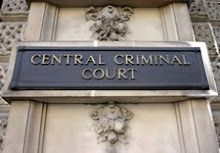Raising the Bar: "The Trial of William Penn"
The Daily Record
Trial lawyers who lack familiarity with great trials of the past may as well be trying cases by the seat of their pants. Surely one of the great trials in Western Civilization is the trial of William Penn in 1670. This is the same William Penn who received from King Charles II of England in 1681 a large land grant, “Penn’s Woods,” which Penn named after his father and subsequently became known as the state of Pennsylvania. Penn established the colony of Pennsylvania so that Quakers and others could enjoy religious freedom.
But in the summer of 1670, when Penn was 26 years old and after he had become a Quaker, he was arrested in London on a charge of disturbing the King’s peace. The charge resulted from Penn preaching nonconformist religious views at an outdoor meeting in London at a time when the monarchy was aggressively suppressing religious dissent.
At the outset of the trial in the Old Bailey, London’s central criminal court, Penn demanded to know under what law he was charged. It is reported that the following exchange occurred between Penn and the presiding magistrate, Mayor Sam Starling:
Penn: I desire you would let me know by what law it is you prosecute me, and upon what law you ground my indictment.
Judge: Upon the common-law.
Penn: Where is that common-law?
Judge: You must not think that I am able to run up so many years and over so many adjudged cases, which we call common-law, to answer your curiosity.
Penn: This answer I am sure is very short for my question, for if it be common, it should not be so hard to produce.
Judge: The question is, whether you are Guilty of this Indictment?
Penn: The question is not, whether I am Guilty of this Indictment, but whether this Indictment be legal. It is too general and imperfect in answer, to say it is the common-law, unless we knew both where and what it is. For where there is no law, there is no transgression; and that law which is not in being, is so far from being common, that it is no law at all.
Judge: You are an impertinent fellow, will you teach the court what law is? It is Lex non scripta, that which many have studied thirty or forty years to know, and would you have me tell you in a moment?
Penn: Certainly, if the common-law be so hard to understand, it is far from being common.
[See Trial of William Penn, 6 How. St. Trials 951,958 (1670).]
Judge vs. jury
During the trial, the jury and the crowds in the courthouse began to appreciate William Penn’s defense that by merely speaking on a street corner he had not violated a law. The Crown produced no substantive evidence against him. When Penn interrupted the trial with questions and objections, he was removed from the presence of the jury and confined in an enclosed corner of the room where he could not confront witnesses accusing him of preaching to the Quakers or ask questions of the witnesses who testified against him.
At the conclusion of the trial the jury retired to deliberate its verdict. Upon the jury’s return, foreman Edward Bushnell reported to the court simply that the jury found that William Penn had spoken on the street, which was no violation of the law at all.
The judge was outraged and overcome with anger. He commanded the jury to retire again and render the verdict of guilt. Nevertheless, the jury returned and again stated that the verdict was that Mr. Penn had simply spoken on a street and not violated any law. The indignant judge confined the jury “to the hole,” in Newgate Prison, and instructed the foreman Bushnell that the jury would remain in the hole without food or water until a proper verdict was rendered.
Three more times the jury went out and returned the same verdict. When the jurors persisted in refusing to go out any more, the judge fined each of them and ordered them imprisoned until the fines were paid.
Such harsh treatment was not unprecedented. Juries in 1670 were very much under the thumb of the Crown: if a jury delivered a result that was unsatisfactory to the Crown, jurors were imprisoned and fined. In fact, after the verdict in the William Penn case, foreman Bushnell (sometimes reported as Bushnel or Bushel) was imprisoned for alleged misconduct as a juror. He sought and achieved his own release by writ of habeas corpus. (See Vaughn’s Reports, 135.) The Writ was issued by Lord Chief Justice Sir John Vaughn of the Court of Common Pleas. Interestingly, this was the first time the court had issued such a writ.
Despite the jurors’ courageous stand, William Penn and a co-defendant did not escape punishment. They were sent to prison — for wearing hats in the courtroom. Penn and his companion had removed their hats upon entering the courtroom, but the judge ordered them to put their hats on, which they did.
After their release from prison, Penn left England to journey to America.
The William Penn trial helped establish the principle of jury independence, which remains vital to our democracy. A jury stands between the arbitrary power of the state and the rights and liberties of individuals. All of us should appreciate the value of trial by jury and be disturbed when it is denied to anyone so entitled.
Litigation partner Paul Mark Sandler is the author of “Raising the Bar,” a regular column on trial advocacy that appears on alternate Fridays in The Daily Record and other Dolan Media newspapers

No comments:
Post a Comment